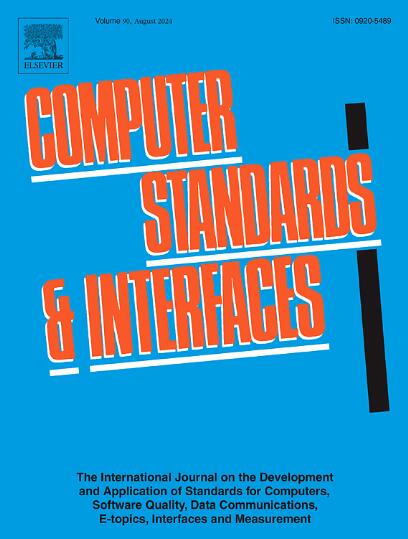Blockchain-based cross-domain query integrity verification mechanism for outsourced database
IF 4.1
2区 计算机科学
Q1 COMPUTER SCIENCE, HARDWARE & ARCHITECTURE
引用次数: 0
Abstract
With the growth of cloud computing, more and more organizations are outsourcing data to cloud platforms for flexibility and cost-effectiveness. However, this also poses the risk of data tampering or forgery, especially in the case of cross-domain queries, where the integrity of the query results needs to be ensured and cross-domain authentication is performed at the same time. Traditional approaches rely on centralized third-party authentication authorities, which increases complexity and potential security risks. To address these issues, we propose a blockchain-based Cross-domain Query Integrity Verification (CQIV) mechanism for outsourced databases. The mechanism leverages the decentralization and non-tamperability of the blockchain to achieve efficient cross-domain authentication and query integrity verification without the need for a third-party certification authority. By constructing a cuckoo filter on the blockchain, the authentication efficiency is improved and the storage cost is reduced. In addition, Dynamically Adjustable Capacity Cuckoo Filter (DACF) is designed to optimize query efficiency. Finally, the effectiveness and practicality of the mechanism are verified by comprehensive security analysis and performance evaluation.
基于区块链的外包数据库跨域查询完整性验证机制
随着云计算的发展,越来越多的组织将数据外包给云平台,以获得灵活性和成本效益。然而,这也带来了数据被篡改或伪造的风险,尤其是在跨域查询的情况下,需要确保查询结果的完整性,并同时进行跨域身份验证。传统方法依赖于集中式第三方认证机构,这增加了复杂性和潜在的安全风险。为了解决这些问题,我们为外包数据库提出了一种基于区块链的跨域查询完整性验证(CQIV)机制。该机制利用区块链的去中心化和不可篡改性,无需第三方认证机构即可实现高效的跨域身份验证和查询完整性验证。通过在区块链上构建布谷鸟过滤器,提高了认证效率,降低了存储成本。此外,还设计了动态可调容量布谷鸟过滤器(DACF),以优化查询效率。最后,通过全面的安全分析和性能评估,验证了该机制的有效性和实用性。
本文章由计算机程序翻译,如有差异,请以英文原文为准。
求助全文
约1分钟内获得全文
求助全文
来源期刊

Computer Standards & Interfaces
工程技术-计算机:软件工程
CiteScore
11.90
自引率
16.00%
发文量
67
审稿时长
6 months
期刊介绍:
The quality of software, well-defined interfaces (hardware and software), the process of digitalisation, and accepted standards in these fields are essential for building and exploiting complex computing, communication, multimedia and measuring systems. Standards can simplify the design and construction of individual hardware and software components and help to ensure satisfactory interworking.
Computer Standards & Interfaces is an international journal dealing specifically with these topics.
The journal
• Provides information about activities and progress on the definition of computer standards, software quality, interfaces and methods, at national, European and international levels
• Publishes critical comments on standards and standards activities
• Disseminates user''s experiences and case studies in the application and exploitation of established or emerging standards, interfaces and methods
• Offers a forum for discussion on actual projects, standards, interfaces and methods by recognised experts
• Stimulates relevant research by providing a specialised refereed medium.
 求助内容:
求助内容: 应助结果提醒方式:
应助结果提醒方式:


